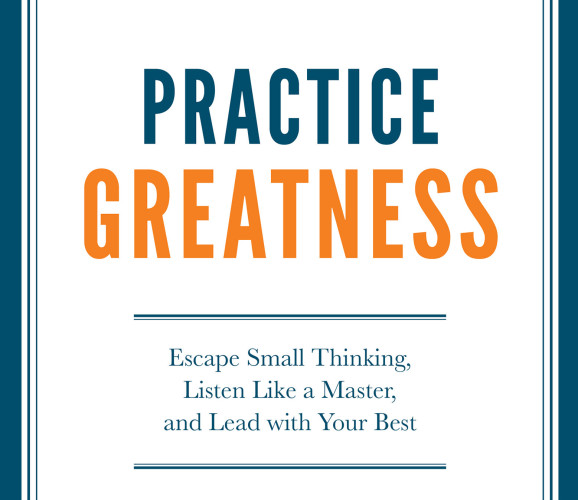![Featured image for Amiel Handelsman Teaches Leaders How to 'Practice Greatness' - Part 1 [Interview]](/content/images/size/w960/content/v1/56ad0eb962cd942d9e46f366/1454986510994-4Z1OHYO6LYWM0HADUW4Q/practicegreatness_epub2-578x500.jpg)

The culture of any workplace is highly dependent on the leaders and managers. From their thinking to their actions, leaders have a huge impact on their employees and the overall office culture. Amiel Handelsman recognizes this and wants to show leaders how to change the way they think and their actions to produce a better and more productive culture.
In his book Practice Greatness: Escape Small Thinking, Listen Like A Master, And Lead With Your Best, Handelsman teaches leaders how to reach their true full potential through a set of specific actions, such as deliberate practice and self-reflection. I was able to interview him about his new book, and his responses and insight were so great I decided to turn it into a multi-part series.
Here's what Handelsman had to say about the steps leaders can take to realize their full potential:
The first and most important thing to realize is that you are not a generic leader, but instead a person with unique gifts and limitations in a situation with distinctive challenges and opportunities. So don't listen to generic leadership advice. This may sound obvious, but it's a common trap many leaders fall into. And for good reason: in my estimation, 98 percent of the leadership advice out there is generic. For example, "act with boldness" is sound advice for some leaders but terrible advice for others. Ditto for "be generous with your time," "collaborate more," or "think before you act." I've coached leaders who've been drawn to such advice only to find that it amplified a weakness or distracted them from more pivotal areas of improvement.
Second, expose yourself to a variety of challenging experiences and extract as much learning from these experiences as you can. It's not about moving up the ladder or getting greater visibility as much as challenging yourself in new ways. For example, if you've done a turnaround, try a startup—or manage a team that has a track record of success. Each of these experiences teaches different lessons. If you've spent years managing people who report to you, try a role where you have to influence without authority. And then learn as much as you can as fast as you can. Ironically, we learn faster when we slow down to reflect and get feedback.
Third, get support from colleagues, mentors, or a coach. The greater the challenge you take on, the greater the support you need.
Fourth, realize that you have an Achilles Heel, find out what it is, and then heal it. I think of the Achilles Heel as the one big flaw or blind spot that, if ignored, can screw up your career or at least keep you from realizing your potential. It's a set of habits wired into your brain and body that limits your repertoire of leadership behaviors. Fortunately, the latest neuroscience tells us that you can rewire these habits well into adulthood. My favorite approach to helping leaders understand their Achilles Heel (as well as much more, like the quality of their greatness) is called the Enneagram. It provides nine answers to the question, "What makes me tick?"
Fifth, identify one or two skills that are pivotal to realizing your potential. These could be strengths that you want to use in new ways or skills that you haven't fully developed. In my book, I offer fifteen inner and outer practices of great leadership. I call them "practices" because the idea is to practice them over and over again just like you would practice swinging a bat or playing piano. Repetition matters.
Finally, find a reason for leading that ignites you. In my experience, one factor differentiates leaders who carry on the hard work of practicing leadership to completion from others who barely get out of the starting blocks: a sense of purpose beyond their own narrow self-interest. Getting a raise or promotion and making more money are great, but neither provides enough fuel to sustain the practice of great leadership. Now, discovering this purpose isn't easy, and it often takes years if not decades. Here are some questions to ask: What do you want to be known for? What do you feel passionate about taking a stand on? What would you risk embarrassment or fear to bring into being? These are big questions, and for good reason. We're not talking about getting slightly better. We're talking about realizing your full potential!
Stay tuned for part 2 of my interview with Handelsman, where he talks about the four steps of deliberate practice.
---
Amiel Handelsman is a Portland-based executive coach and change consultant with two decades of experience developing leaders. He is the author of Practice Greatness: Escape Small Thinking, Listen Like A Master, And Lead With Your Best (JZ Leadership Press, 2014).
The world keeps accelerating. The Simplicity Protocol helps ambitious professionals do less to achieve more through weekly elimination strategies you can implement in 20 minutes or less.

Member discussion